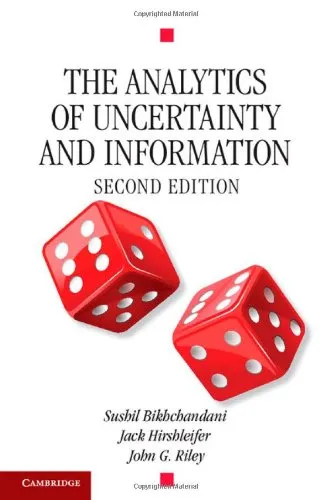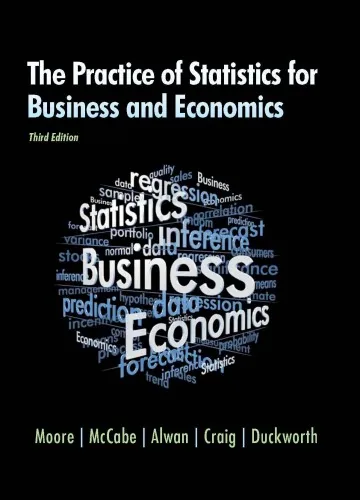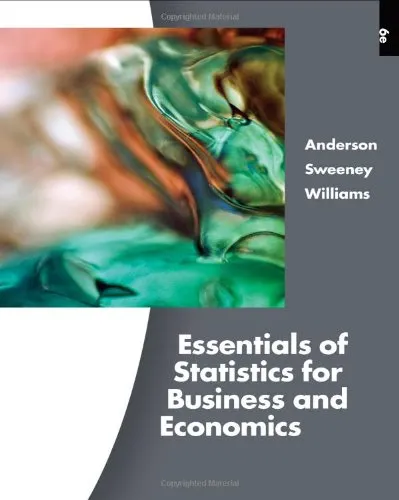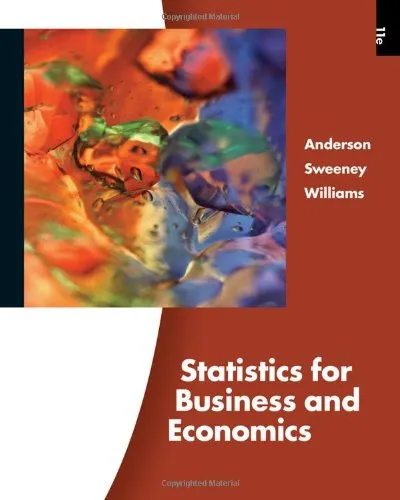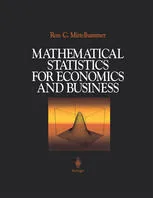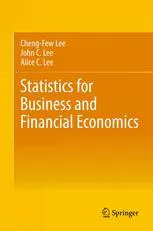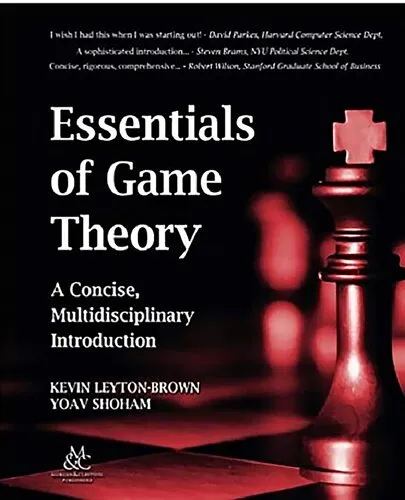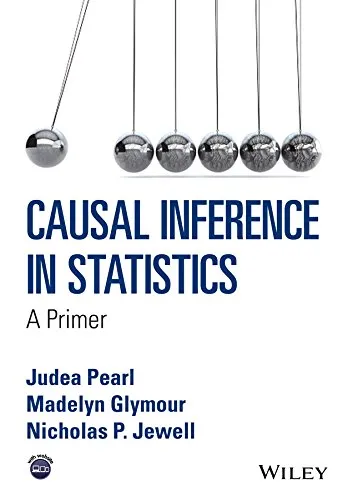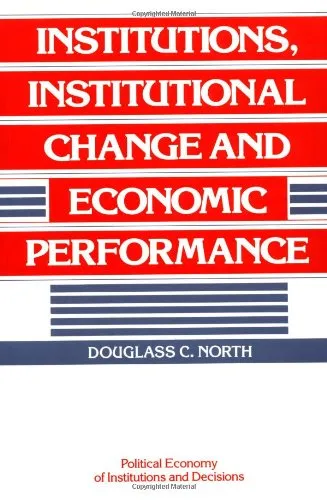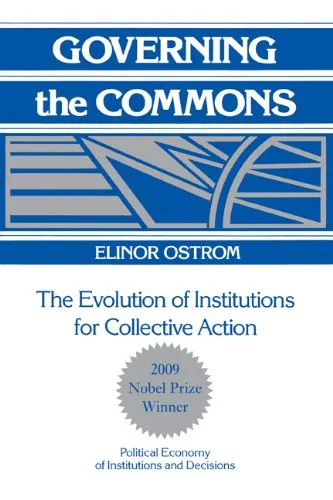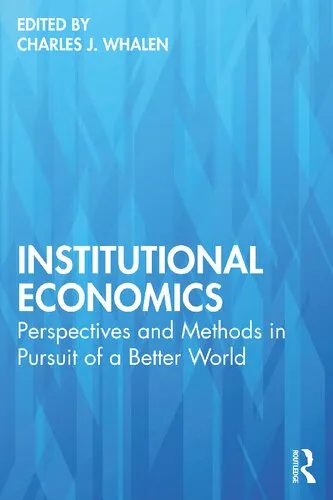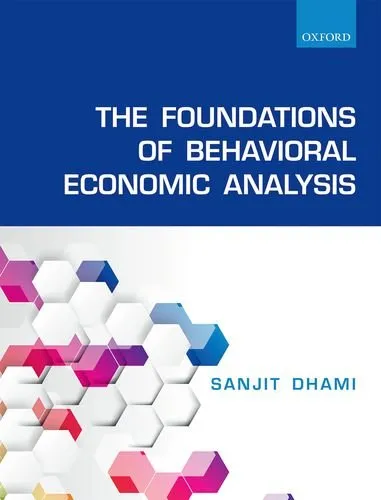The Analytics of Uncertainty and Information
4.5
بر اساس نظر کاربران

شما میتونید سوالاتتون در باره کتاب رو از هوش مصنوعیش بعد از ورود بپرسید
هر دانلود یا پرسش از هوش مصنوعی 2 امتیاز لازم دارد، برای بدست آوردن امتیاز رایگان، به صفحه ی راهنمای امتیازات سر بزنید و یک سری کار ارزشمند انجام بدینکتاب های مرتبط:
معرفی کتاب: The Analytics of Uncertainty and Information
کتاب The Analytics of Uncertainty and Information نوشته بیکچاندانی، رایلی و هیرشلیفِر، یکی از تأثیرگذارترین منابع در زمینه اقتصاد اطلاعات و نظریه تصمیمگیری در شرایط عدمقطعیت است. این کتاب، که برای محققین، اقتصاددانان، و دانشجویان این حوزه نوشته شده است، به شکاف میان اطلاعات و تصمیمگیری میپردازد و ابزارهای مهمی را برای تحلیل وضعیتهای غیرقطعی ارائه میکند. با استفاده از تئوریهای کلاسیک و مدلهای نوین، نویسندگان ضمن بررسی مشکلات اطلاعات ناقص و نامتقارن، تحلیل عمیقی از مفهوم "عدمقطعیت" و تأثیر آن بر تصمیمگیری اقتصادی ارائه میدهند.
خلاصهای جامع از کتاب
The Analytics of Uncertainty and Information به شکلی سیستماتیک متاثر از دو زمینه اصلی است: اقتصاد خرد و نظریه بازیها. این کتاب در ابتدا به مفهوم Base مدلهای تصمیمگیری پرداخته و در ادامه به صورت عمیقتری به بررسی اثرات اطلاعات ناقص و پویا روی انتخابها و نتایج اقتصادی میپردازد. فصلهای مختلف این کتاب با ابزارهای ریاضی، مدلهای آماری و بحثهای متنی طراحی شدهاند تا برای تحلیل اقتصادی در شرایط غیرشفاف و عدم اطمینان به کار گرفته شوند.
موضوعات کلیدی این کتاب شامل مباحث زیر است:
- مدلهای بهینه تصمیمگیری در شرایط عدمقطعیت
- روابط اطلاعات نامتقارن و پیامدهای اقتصادی
- تحلیل بازارها و مکانیزمهای آنها تحت تاثیر سیگنالینگ (Signaling) و اسکرینینگ (Screening)
- اثرگذاری اطلاعات خصوصی و تغییر اطلاعات جمعی
- نقش احتمالات و ریاضیات در تصمیمسازی عقلانی
مفاهیم کلیدی و دستاوردهای این کتاب
یکی از مهمترین دستاوردهای این کتاب آموزش چگونگی مدلسازی شرایط پیچیده است که با اطلاعات غیرقطعی مواجه هستند. نویسندگان با استفاده از Case Studyهای واقعی و نظریههای معتبر، نشان میدهند که چگونه Problems of Incomplete Information میتواند نتایج آینده را تغییر دهد.
علاوه بر این، کتاب تأکید زیادی بر نقش طراحی مکانیسمهای بازار (Market Mechanisms) دارد و بیان میکند که سیاستگذاران اقتصادی چگونه از این ابزارها برای کنترل بحرانهای ناشی از عدمتقارن اطلاعاتی بهره میبرند. مطالعه این کتاب باعث میشود خوانندگان دیدگاهی جدید نسبت به اقتصاد اطلاعات و نقش آن در بهبود عملکرد سازمانی و اقتصادی کسب کنند.
برخی از نقلقولهای معروف کتاب
- "Uncertainty does not necessarily imply a lack of rationality; rather, it challenges the decision-maker to process incomplete information optimally."
- "Signal Reliability is the cornerstone of effective decision-making in asymmetric information setups."
- "Markets are not perfect. They are fragile constructs influenced largely by the nature and flow of information."
چرا این کتاب اهمیت دارد؟
The Analytics of Uncertainty and Information یکی از منابع پایه برای درک عمیق تأثیرات عدمقطعیت و اطلاعات ناقص در اقتصاد مدرن است. این کتاب نه تنها به دانشجویان، بلکه به تحلیلگران، سرمایهگذاران و مدیرانی که با تصمیمهای پرریسک و نااطمینانی روزانه مواجه هستند، کمک شایانی میکند. علاوه بر این، آموزههای این کتاب به سیاستگذاران نیز ابزارهایی ارائه میکند تا سیاستهای بهتری برای مقابله با بحرانها طراحی کنند. اهمیت این کتاب را میتوان در کاربرد وسیع آن در حوزههای اقتصادی، مالی، و حتی مدیریتی مشاهده کرد.
Introduction to "The Analytics of Uncertainty and Information"
"The Analytics of Uncertainty and Information" is a profound and meticulous exploration of decision-making under uncertainty, written by Bikchandani S., Riley J.G., and Hirshleifer J. This book addresses fundamental questions related to economics, behavior, and choices in uncertain environments by combining rigorous mathematical models with accessible narratives. Designed for readers who seek to understand the principles of risk, information asymmetry, and incentives, this text prepares you with the tools to analyze decisions in real-world scenarios—including economics, public policy, and finance.
The book is structured to provide a comprehensive analysis of how uncertainty influences choices. It equally delves into the concept of information—how it is shared, misunderstood, and valued in markets and strategic interactions. The authors outline the complexities individuals and organizations face when trying to make informed decisions with imperfect or incomplete information, demonstrating how these challenges shape outcomes at different levels.
By combining economic theory with applied mathematics, "The Analytics of Uncertainty and Information" is an essential resource for both academic and professional disciplines. Whether you're an economist, policymaker, business strategist, or student of decision sciences, this powerful volume will deepen your understanding of the sophisticated interplay between uncertainty, information, and decision-making.
Detailed Summary of the Book
The book introduces key concepts such as decision theory, game theory under uncertainty, and the role of information asymmetry in economics—presenting them with clarity and depth. It begins by laying the foundation for analyzing decisions in risky environments and slowly progresses into more advanced topics, such as belief updating (Bayesian analysis), moral hazard, and adverse selection. Alongside theoretical principles, the authors integrate thought-provoking real-world applications ranging from auctions and insurance contracts to stock market behavior and political processes.
A central feature of the book is its exploration of information flows—how information is distributed across agents, the value of additional information in decision-making, and the strategic manipulation of information in competitive environments. The discussion of equilibrium concepts, such as Nash equilibrium and Bayesian Nash equilibrium, plays a pivotal role in understanding strategic interactions under uncertainty.
The book’s multidisciplinary approach ensures relevance beyond traditional economics, making its ideas applicable in management science, behavioral psychology, and systems analysis as well. Its mathematical rigor is complemented by numerous illustrative examples that make concepts accessible to readers without advanced formal training.
Key Takeaways
- Uncertainty is an inherent component of decision-making, but systematic analysis can improve outcomes under risk.
- Information, while valuable, is often asymmetric and subject to strategic manipulation, which can lead to inefficiencies or market failures.
- Game theory offers powerful tools to analyze strategic interactions, especially when uncertainty or incomplete information is involved.
- The value of information hinges on its ability to reduce uncertainty, but its cost must also be considered in decision-making frameworks.
- Understanding concepts like moral hazard and adverse selection is critical for designing effective contracts and mechanisms in uncertain environments.
- The interplay of economics, psychology, and mathematics provides robust insights into how individuals and institutions behave under uncertainty.
Famous Quotes from the Book
"Uncertainty may obscure the ideal course of action, but it also creates opportunities for innovation and differentiation."
"The value of information lies not merely in its accuracy but in its ability to prompt better decisions."
"Strategic behavior is shaped as much by what individuals know as by what they suspect others know."
Why This Book Matters
"The Analytics of Uncertainty and Information" is a cornerstone text in the fields of economics and decision sciences because it tackles one of the most challenging aspects of human behavior: making choices in the face of the unknown. Its relevance spans disciplines, helping readers address practical problems in finance, policy, management, and beyond.
This book is particularly valuable in today’s data-driven world, where the ability to process uncertainty and act on incomplete information is more critical than ever. Organizations rely on these principles to predict market trends, allocate resources, and design systems that operate efficiently under dynamic conditions. Similarly, individuals can use the frameworks within the book to make rational decisions in their personal and professional lives.
Ultimately, this book equips its readers with not just an understanding of theoretical economics but also a toolkit for navigating the complexities of decision-making. It bridges the gap between theory and practice, making it a must-read for anyone looking to succeed in uncertain environments.
دانلود رایگان مستقیم
شما میتونید سوالاتتون در باره کتاب رو از هوش مصنوعیش بعد از ورود بپرسید
دسترسی به کتابها از طریق پلتفرمهای قانونی و کتابخانههای عمومی نه تنها از حقوق نویسندگان و ناشران حمایت میکند، بلکه به پایداری فرهنگ کتابخوانی نیز کمک میرساند. پیش از دانلود، لحظهای به بررسی این گزینهها فکر کنید.
این کتاب رو در پلتفرم های دیگه ببینید
WorldCat به شما کمک میکنه تا کتاب ها رو در کتابخانه های سراسر دنیا پیدا کنید
امتیازها، نظرات تخصصی و صحبت ها درباره کتاب را در Goodreads ببینید
کتابهای کمیاب یا دست دوم را در AbeBooks پیدا کنید و بخرید
1474
بازدید4.5
امتیاز0
نظر98%
رضایتنظرات:
4.5
بر اساس 0 نظر کاربران
Questions & Answers
Ask questions about this book or help others by answering
No questions yet. Be the first to ask!
